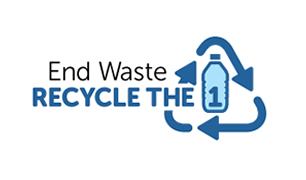Petcore Europe Manifesto in PDF
As Europe continues down the road of circularity and carbon neutrality, every economic sector needs to contribute. The PET packaging industry has a clear objective in place to achieve 90% collection of PET bottles by 2029. Reaching this target will be a collaborative effort. A clear and forward-looking regulatory environment is essential to achieve full circularity and carbon neutrality, but also to deliver on the EU Green Deal. Here are 5 recommendations on how to realise this.
 INVEST IN COLLECTION AND SORTING
INVEST IN COLLECTION AND SORTING
European PET recyclers have an unused capacity of 10 to 12 billion bottles, some of it awaiting approvals to recycle to food contact materials. The industry is ready to recycle more, and in a closed loop scenario: turning bottles into bottles. We need the regulatory framework to help recyclers achieve higher recycling rates and aim at full circularity. Petcore Europe is a signatory of the Circular Plastics Alliance declaration which sets out commitments to reach 10 million tonnes of recycled plastics to be used in new products by 2025.
WHAT EUROPE NEEDS: Investment in better collection and smart waste management systems as standard.
 WE WANT OUR BOTTLES BACK
WE WANT OUR BOTTLES BACK
2 out of 3 PET bottles are collected for recycling in Europe. The PET industry is ten years ahead of the EU’s target and in some countries, over 90% of bottles are collected for recycling or reuse thanks to their deposit return schemes. The PET industry needs its bottles back in order to close the loop. A key element to increasing collection rates are deposit return schemes or similar systems that are convenient for consumers and give value to plastic products. Separate collection must be put in place in the public realm (public buildings, parks, streets), not just private homes.
WHAT EUROPE NEEDS: Acceleration of legislation to introduce separate collection schemes for PET.
 BAN LANDFILLING AND INCINERATION OF PET BOTTLES
BAN LANDFILLING AND INCINERATION OF PET BOTTLES
PET is a valuable material that has no place in landfills and incinerators. PET is fully recyclable and incinerating or discarding it in landfill should be banned across the EU. Some Member States, such as Germany, Austria, Denmark or the Netherlands have already put in place a ban on the landfilling of plastics. There should be no incentive for local authorities and municipalities to incinerate or throw away recyclable packaging.
WHAT EUROPE NEEDS: To be bolder and ban landfilling and incineration of recyclable PET bottles.
 EVIDENCE-BASED DECISION MAKING
EVIDENCE-BASED DECISION MAKING
The concept of waste hierarchy has a long history in EU waste legislation, it is now time to go beyond and develop both a recyclability hierarchy and a carbon hierarchy. Legislation should always favour the least complex and most recyclable material. To achieve a circular economy for packaging, we cannot afford to use packaging that hinders the recycling process. We also need to ensure materials work towards carbon neutrality. PET bottles have the lowest carbon footprint compared to alternative packaging materials. PET is light which saves on fuel for transport and has a low melting point which means less energy use for production and recycling. PET, for instance, is 95% lighter than glass and recycled PET reduces greenhouse gas emissions by up to 90%. We cannot achieve carbon neutrality in Europe by 2050 without packaging materials that work towards this goal.
WHAT EUROPE NEEDS: Evidence-based decision making to ensure legislation favours materials with the smallest carbon footprint and a clear, sustainable end-of-life option.
 EMPOWER EU CITIZENS TO SEPARATE AND RECYCLE THROUGH EDUCATION
EMPOWER EU CITIZENS TO SEPARATE AND RECYCLE THROUGH EDUCATION
The European Strategy for Plastics in a circular economy is transforming the way products are designed, used, produced and recycled in the EU. Soft Drinks Europe (Unesda) has committed to 100% recycled content and/or renewable material by 2030. Better design of plastic products, higher plastic waste recycling rates, more and better quality recyclates will help boost the market for recycled plastics. The importance of education to empower EU citizens, particularly the younger generation, to recycle cannot be understated. It is time to introduce an education scheme which demonstrates good separation practices and promotes the importance of recycling correctly. Education combined with industry’s action to design for recycling will help us reach our targets.
WHAT EUROPE NEEDS: Empowered citizens to recycle and prevent littering.
Legislators have a chance to take 5 concrete actions to enable the PET packaging industry to achieve the goal of making PET in Europe more circular and sustainable as it also, works towards carbon neutrality. Petcore Europe is committed to taking up the challenge and is paving the road to 90% collection of PET bottles.



